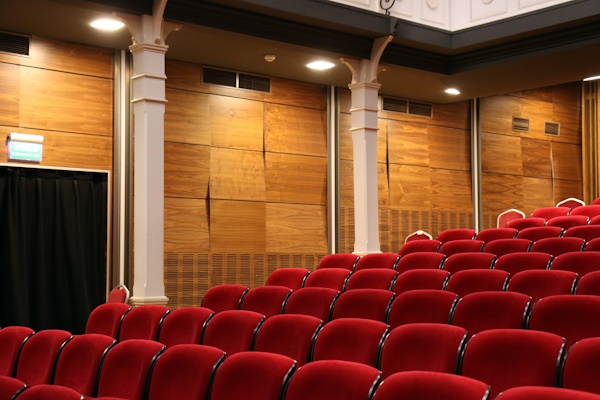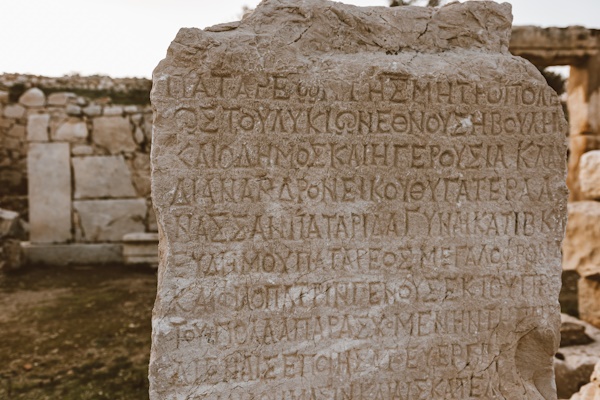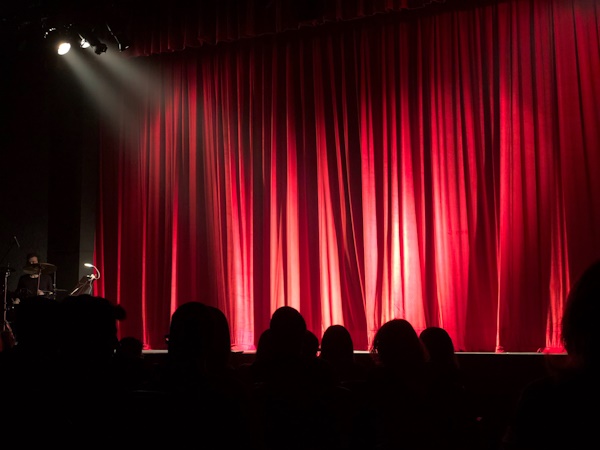- Κωδικός / Course Code: ΘΕΣΠ521
- ECTS: 15
- Τρόποι Αξιολόγησης / Assessment:
10% interactive educational activities, 30% written assignments and 60% final examination
- Διάρκεια Φοίτησης/ Length of Study: Εξαμηνιαία (εαρινό)/ Semi-annual (spring)
- Κόστος/ Tuition Fees: €425
- Επίπεδο Σπουδών/ Level: Μεταπτυχιακό/ Postgraduate
Module Purpose and Objectives
In this module students gain a thorough and clear understanding of key theoretical concepts associated with the theatrical phenomenon, as well as of the main theoretical trends developed or applied in the area of theatrical creation and practice. Among others, elements of anthropology and semiology of the theatre and of the scenic space, elements of theatre phenomenology, as well as the poststructuralist and deconstructionist approaches to the theatrical phenomenon are being scrutinized. Psychoanalytic theories will also be looked at, along with feminist theories and gender theories, as well as reception / reader-response theories. Finally, special reference is made on materialist, postmodern and postcolonial approaches.
After successfully completing this module, students will be expected to:
- Understand the discipline and research field of Theatre Theory.
- Cite the basics of the specificities of theatre (collective communication, actors, audience, theatre as semiotic system)
- Know the core principles of semiology, phenomenology, postmodernism, deconstruction, materialism and postcolonial studies as well as how they connect to Theatre Theory
- Know the basics of theatre semiotics, the various models of semiotic analysis, the core concepts of semiotics, theatrical codes and theatrical communication etc.
- Take a critical stance against the aforementioned theories and apply them to the theatre with convincing and adequate analyses with reference to the key concepts of each theory
- Present the relationships between verbal and non-verbal on stage – in other words, between theatre as a fixed text and theatre as a physically experienced, tangible and ephemeral event
- Explain how the psychoanalytic theory, the feminist and gender theories and reception/reader response theory become intrinsic to different levels of theatrical communication
- Present the institutional status of theatre in the surrounding world; the historical, economic, political forces that connect theatre to the ‘here and now’ of theatre making and/or reception
- Keep track of contemporary theatre trends (postdramatic, experimental theatre, performance etc.)
- Appreciate the role of the audience and the significance of the reception of a play; know the basics of the relevant theoretical approaches
Module Content
- Theatre and Semiology:
- The Theatrical Code
- Theoretical antecedents of theatre semiology
- Basic terms of general semiology
- The system of theatre signs
- The actor’s activities as a sign
- The actor’s appearance as a sign
- Spatial signs
- Theatre Sign – Theatrical Code as Semiotic System
- Basic characteristics of theatrical signs
- Distinction between natural or artificial signs
- Distinction between icons, indexes or symbols
- Distinction between metaphor and metonymy
- Basic theoretical endeavours regarding the structure and hierarchy of theatrical signs and the function of the theatrical code
- Semiotics / Semiology
- Saussure, Peirce and Barthes
- Stage directions in Ibsen and Shaw
- Avant-garde theatre and desemiotics
- Structuralism
- Phenomenology
- Basic principles of phenomenology
- “Perception model” and “experiential model”
- The significant moments of a performance
- “From the I to the We” - Theatre audience
- Intentionality and responsivity
- Phenomenology
- The emergence of phenomenology in the early 20th
- Influences of phenomenology on theatre
- Krapp’s Last Tape; Stanislavski and Chekhov
- Artaud, Nietzsche, theatre anthropology
- Deconstruction
- Poststructuralism and Deconstruction
- Derrida and Deconstruction
- Artaud’s “theatre of cruelty” according to Derrida
- “Critical Theory” (The Frankfurt School)
- Postmodern theory
- Postmodernism or the Theory of the Postmodern
- Simulacra, simulation, hyper-reality
- The concept of “pastiche”
- The limits of representation
- Aesthetic traces of postmodernism
- Performativity-performance
- Reception Theory
- Theatre audiences
- The horizon of expectations
- The theatre as event
- Forum theatre
- Conventions
- Theatre as a privileged field of the gaze
- Audience and performance
- Reader-response and reception theory
- Materialist theory
- Materialism and Renaissance theatre
- Brecht and Coriolanus
- Materialism and Utopia
- Cultural Studies
- Marxist aesthetics and engaged theatre
- Psychoanalytic Theory
- Freud
- Jacques Lacan
- Drama therapy, role-play and autobiographical monologues
- Anti-Oedipal theatre: Dionysus in 69
- Feminism and Gender Theory
- Feminist Theatre
- The paradigm of Caryl Churchill and Ntozake Shange
- Queer Theory
- Angels in America
- Masculinity traditions and the paradigm of Oedipus
- Postcolonial theories
- Shakespeare’s The Tempest: Aimé Césaire’s theatrical adaptation
- Intercultural theatre: Wole Soyinka και Rustam Bharucha
- David Henry Hwang και Tomson Highway
- “Theatre of the Oppressed”: Augusto Bοal and the political dimension of theatre






